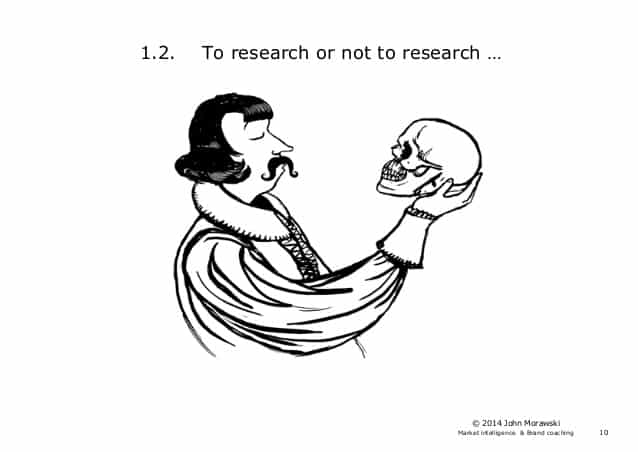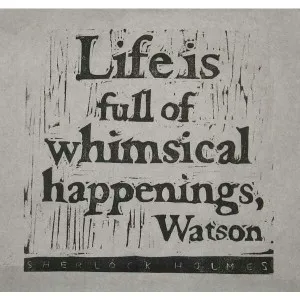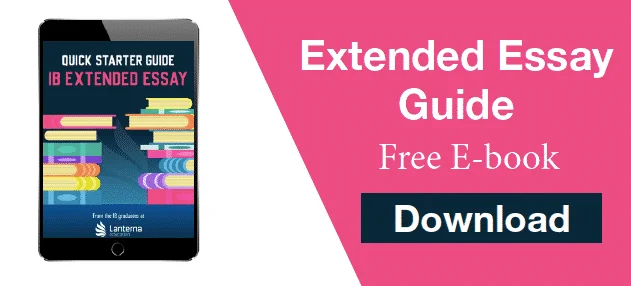The Easter Break is nearly upon us. Ten years ago this might have been a cue to eat more chocolate than you can handle. But if you’re in DP1 of the IB that small thing called the Extended Essay will be hovering on the horizon. You know that you should think about it over the break, but whether you do or not might depend on how much Netflix you have to catch up on. To start the research or not to start?

If you read our first post in this step-by-step guide, on choosing an Extended Essay topic, you’ll know that we think you should definitely start as soon as you can.
So what do I mean by research? I’m talking about the intense stuff. The in-depth exploration that will inform your essay, and which you will be able to use later on in your Bibliography. Good research is the key to making everything easy for you during the writing stage. If you’ve done the research properly, then the essay structure, the case study, or the experiment will practically plan itself.
But how do you do the research so that it is as effective as possible without taking over your entire Easter break?
1. Know WHAT you’ll need
Read the Extended Essay Guide for your subject (yes I am going to recommend that in every part of this guide, so you may as well do it now!). For all subjects it will tell you whether you need primary research, secondary data, or a combination. Work out whether ‘research’ for you means gathering data compiled by someone else, creating your own data, reading other people’s opinions, or digging out hard facts. Depending on what your subject and topic is, your research might be the crux of your entire essay, or it might simply give you ideas to enhance your own thoughts.
Use the Guide to define the limits of your research. Your Extended Essay has to focus on your chosen subject as defined by the IBO (and World Studies has its own definition and requirements). That means you must define your subject in the same way, e.g. “Biology is the science that deals with living organisms and life processes”. Use this to work out where your research should take you. And don’t waste time doing research that takes you into another subject area, E.g. Medicine.
Work out how recent your research needs to be. Again, this is a way to save time! Economics, for example, shouldn’t be historical. That means your information needs to be recent! Equally research in the Sciences goes out of date very quickly so stick within the last couple decades, and newer is better! (as long as it’s reliable… I’ll get onto that). For Literature and History, it’s less important that your sources are new, although it’s easier than you might think to quote what sounds like a very insightful idea only to realise it was first written in the 1920s!

Exercise 1: Read the guidelines for your subject and write down what kind of research you’ll be doing. Is it Primary or Secondary? Will you conduct your own experiment or use data from someone else’s? Are you looking for factual information or theories? What window of time do you want your research to have come from? 2013-2016, or 1980-2016? Write it down now because later you can check your progress against this to make sure you’re staying on track.
2. Know WHERE you’ll find it
For the Extended Essay you’ll need to go beyond Google and beyond the shelves of your library. A good Extended Essay Bibliography should be a varied pick and mix selection* of online and off-line sources, modern dates, and obscure and established publications. Remember those 40 hours the IB recommends you spend on your Extended Essay? Your Bibliography is proof that you have been working hard!
But how do you get all those sources? Ask your teachers. If you don’t have a supervisor yet, I can guarantee you that your librarian knows more about what you have access to than you realise. Find out what subscriptions your school has, both online and off. If your library doesn’t have a book in stock it might be able to order a book in for you. Find this out.
For Science, it’s vital that your research is up to date. That means your material will probably come from journals, (reliable) websites, and studies by other scientists. Consider approaching universities and other academics who may be able to point you in the right direction.
On the other hand for something such as Literature your primary research should mean reading your chosen texts, whether they are novels, plays or poems. Consider supplementing this with other first-hand materials such as journal entries, letters or essays by the author or their contemporaries. Finally secondary research encompasses the ideas of other academics, although the Guide states that these should not replace your own analysis and ideas.
It’s not too hard to work out whether a source is reliable or not. Most of the time it’s common sense; can you name the author? Do they have experience in what they’re talking about or might they know less than you? It’s okay to use sources that may have a bias or might be ignorant of one thing or another, but the key is to be aware of this and make it clear in your essay that you are aware of it.
Here are some good online places to go for information:
Google Scholar: Basically Google except that it will show you only the academic resources related to your search: articles, essays and legal documents. In other words, all of the stuff here should be fair game to put in a Bibliography.
Google Books: Free books! Lots of them! And the best part is you don’t have to admit you used Google; for all the examiner knows you dug through the dusty shelves of a library yourself. Even for books which only have a preview this is useful to work out if a hard copy of the book would be useful to you.
JSTOR: If your school has a subscription to this, use it! A database of hundreds of academic journals which make for great background research. However be aware it doesn’t include the latest research, so make sure what you find here will stick within the dates you defined earlier on.
Public Library of Science (PLOS): An open access online library of scientific literature. Includes science-related journals.
www.online-literature.com A website full of poetry, short stories and novels of almost every ‘classic’ author whose work is out of copyright. When it comes to referencing later, it will probably look better to go and dig out a hard copy of the work purely for reference purposes, but this is handy for initial browsing.
Wikipedia: Didn’t think I’d put this on here, did you? This is obviously not good as a source in itself, however if you scroll to the bottom of most Wikipedia pages you’ll often find a pretty comprehensive list of sources that are directly relevant to the topic and which you could use as a starting point for your own research.
Exercise 2: Make a list of the resources you think will be useful for your essay, and which you know you have access to. And remember that different search engines are useful for different subjects.
3. Know HOW you’ll get it
Believe it or not, research requires research. It won’t happen by accident and takes careful planning in order to get the most out of the sources that you use.
After you know where you might find useful sources, do some initial digging to find out what’s out there that will be specifically useful for your chosen topic. As I mentioned, Wikipedia could be a starting place for this. Or you might need to do a quick search through the database of your school and local libraries and place orders for books. Whatever you do, keep a list of everything you find that might be useful to you, and use it as a checklist. You won’t have time to read it all at once.
Plan out your research time in blocks to make sure that it happens. And think about what you can do in different places. It goes without saying that you’ll be able to do your online research at home, but think about what articles you could download to read when you don’t have internet. If you take a book out of a library you will be able to read that when you don’t have a laptop in front of you.
Finally, think about when the research will be most useful to you. Is there information you need to know before you undertake a lab investigation? What about data that will make more sense after you’ve done some initial reading? Thinking about all of these things will make sure that your research is as effective as it can be.
Exercise 3: Make a plan of attack (also known as a schedule) for what you’re going to do in what order, and how long it will take. For example (this one is for English A):
4. Keep track of everything!
You’ll need a reference for anything you use that you didn’t pluck out of your own head. This applies to:
- Quotes
- Ideas and Summaries
- Data
- Images
By ideas and summaries I mean any theory or idea that is not common knowledge. So you don’t need to reference the fact the spinach is green but you might need to reference what green food colouring is made of.
There is no set referencing system that you need to use in your Extended Essay, but you do get marked on how you use it. So make sure that whatever you choose, you use it consistently. Ask your supervisor which one they would recommend, and it’s useful at this stage to have a skim of what information you need to keep track of as you go along. Guides for the different systems are easily accessible online on websites like this one:
Anytime you read something that might be useful, make a note of all the information you’ll need to include in a Bibliography later. That will usually include the author name, title, the publisher, the year and place it was published, and the page numbers.
Keep track of your research by extracting the key material onto your own document. Whether that means copy and pasting the vital quotes, summarising the idea or saving an image you might want to use, make it as accessible for yourself as possible! Don’t just keep a document of links to articles you found interesting! When you want to plan your essay I promise you that you won’t remember what it says. This:
Is much less useful than this:
“When beginning Mrs Dalloway, Woolf intended to write “six or seven” grouped short texts” p. 143, Wild Outbursts of Freedom: Reading Virginia Woolf’s Short Fiction, Nena Skrbic (2004), Praeger Publishers, Westport, CT
Exercise 4: decide how you will organise your research:
- Create a EE research folder on your laptop and create blank documents inside it, labelled depending on what you might need, e.g. journal articles, primary research, hard copy books.
- Assign a physical EE folder for any handwritten notes that you make, whether in a library or just out and about.
- Choose your referencing system.
Got that? Okay… I think you’re ready!
Read Part 4: The Question




